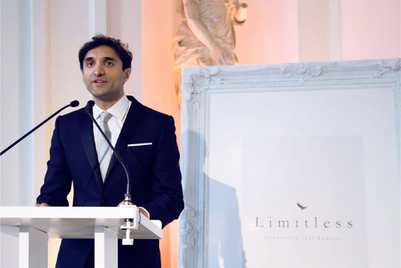
The Olympics provide a magnificent platform to showcase the awe-inspiring potential, power, resilience, and evolution of human beings. This year, Ni Xialian, affectionately known as 'Auntie Ni', captured hearts by becoming the oldest competitor in Olympic history to win a table tennis match. She also became the oldest player at the Olympics to lose to the world number one, Sun Yingsha, but her infectious smile and the applause she received told a different story. Her undeniable spirit and desire to always improve—despite having been one of the best in the world 40 years ago—resonate profoundly in a world that is re-evaluating perceptions of ageing, particularly concerning women.

In Asia, terms like ajumma, auntie, and O ba san have traditionally encapsulated a mix of respect, fear, derision, and mockery. These labels often conjure images of older women who are well-past their youth, assertive within their families, are stereotypically depicted in everyday attire like visors and floral slacks, and carry shopping carts. However, this stereotype is increasingly being challenged by groups like Ajummaexp and Japanese retirees such as Bon.Pon, who aim to celebrate middle age and defy societal biases. They demonstrate that life can be fully experienced at any age. Icons like Auntie Ni are transforming society’s perception of ageing from inevitable decline to an opportunity to live differently—maturing with grace, elegance, humour, and vitality. Julia Louis-Dreyfus’s podcast “Wiser than me” and the Netflix film Nyad are just a few global examples highlighting the inspiring stories of older women who exhibit bravery, resilience, and a zest for life.
As the global population ages, brands have an opportunity—and a challenge—to address the needs of a demographic that is growing rapidly. According to projections, the global population aged 65 and older is expected to reach over 1.5 billion by 2050, representing nearly 16% of the world’s population. In Asia, where the ageing population is expanding faster than anywhere else, this demographic will become increasingly significant. Brands that fail to recognise and adapt to this shift risk losing relevance in a market with tremendous purchasing power.
However, some are getting it right and paving the way forward.
For example, Pixie Dust Technologies has released 'Memory' and 'Tomorrow'—two audio experiences using gamma wave technology designed to enhance cognitive function through auditory stimulation. By making gamma wave technology readily accessible, they offer new possibilities for providing cognitive support to those with dementia.

In Japan, Truly’s Menotech consultation service specialises in menopause support, providing consultations via LINE while raising awareness and making information inclusive and accessible—even to men. This reduces misinformation, bias, and stigma and highlights the potential for menopause to be managed well.

Luxury brand Miu Miu has collaborated with influential women across generations as part of their 'Women’s tales initiative', which explores the nature of 21st-century womanhood. In China, 85-year-old actress Wu Yanshu captivated audiences with her grace and elegance, challenging public perceptions alongside her younger peers as part of their campaign.

These examples demonstrate that effectively targeting the ageing population can be done thoughtfully and meaningfully by making them the focus of campaigns. This is not an afterthought marketing strategy but a dedicated and deserving effort. Just like any inclusivity initiative, there is untapped potential in embracing those who wish to be part of the culture and conversation, offering both social and economic benefits.
We face centuries of entrenched biases that must be unlocked and transformed, and brands have the power to tell these stories in influential ways. Businesses need to innovate to meet the needs of a growing demographic and support the desire for a rewarding, positive, and optimistic lifestyle, rather than positioning themselves as saviours.
With over a billion women over 40 globally, there is a substantial audience eager for a new, resonant story about ageing. It is time to embrace this narrative—one that celebrates the vibrancy, potential, and continued growth that come with age, much like this year’s Olympic motto: "Games wide open."
Maya Madhusoodan is the managing director at Space Doctors.



.jpg&h=334&w=500&q=100&v=20250320&c=1)

.jpg&h=334&w=500&q=100&v=20250320&c=1)

.jpg&h=334&w=500&q=100&v=20250320&c=1)

.jpeg&h=334&w=500&q=100&v=20250320&c=1)


.jpg&h=334&w=500&q=100&v=20250320&c=1)
.jpg&h=268&w=401&q=100&v=20250320&c=1)
.jpg&h=268&w=401&q=100&v=20250320&c=1)

.png&h=268&w=401&q=100&v=20250320&c=1)



.jpg&h=268&w=401&q=100&v=20250320&c=1)